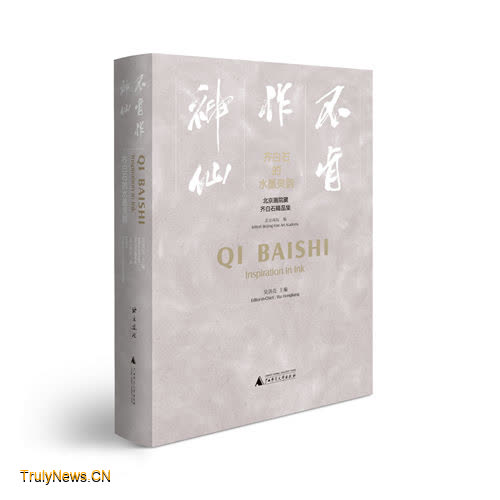
Qi Baishi (1864-1957), an eminent artist of the 20th century, left an abundant collection of paintings, calligraphy and manuscripts from his long career.
Digging into the scope of this collection has been a long-term commitment for researchers at the Beijing Fine Art Academy.
Founded in May 1957, the academy had Qi as its first — and only — honorary president. The academy is known for its rich collection of Qi’s works and continuous research into his art and life. Throughout decades, it has shared its academic fruits with the public through publications.
The academy recently launched four new books focusing on the research’s latest developments. One book highlights Qi’s flower-and-bird genre of classic Chinese painting, a motif in his output that has garnered great popularity. The second book zooms in on Qi’s Beijing residency — he moved to the city in 1919 from his native Hunan province at 55 years old.
The books were highlighted at the academy’s two-day Academic Annual Conference on Nov 28 and 29, where three themed seminars were held.
One discussed the qualities of Qi, promoting him as a great modern artist to commemorate the 160th anniversary of Qi’s birth. The second examined ink traditions from the perspective of literature and how they influenced each other. The third discussion looked at the changes brought by, or will be brought by, AI in the creation of art.